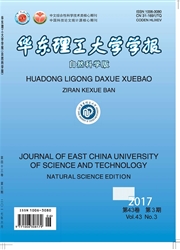

 中文摘要:
中文摘要:
从富含海参皂苷的革皮氏海参中分离纯化出Echinoside A(EA),并研究了其抗肿瘤细胞转移活性及其作用机制。通过MTT法检测了EA对肿瘤细胞(HepG2)和人脐静脉内皮细胞生长的影响;采用细胞黏附实验、划痕愈合实验和Transwell小室侵袭模型研究了EA对肿瘤细胞黏附、迁移和侵袭能力的影响;采用体外小管形成实验和鸡胚绒毛尿囊膜(CAM)血管新生模型研究了EA对血管新生的影响。实验结果表明:EA能显著抑制肿瘤细胞和内皮细胞的增殖,抑制肿瘤细胞的迁移、侵袭和黏附能力,显著抑制CAM新生血管生成作用。免疫细胞化学和Western-blotting实验表明,EA能显著下调MMP-9和VEGF的蛋白表达,提高TI MP-1的表达,但是对NF-κB p65的表达无显著性影响;提示EA具有显著的抑制肿瘤转移作用,其作用机制可能是通过MMP-9信号通路并进一步抑制血管内皮生长因子的蛋白表达实现。
 英文摘要:
英文摘要:
Echinoside A(EA),a triterpene glycoside,was obtained from the sea cucumber Pearsonothuria graef fei,which is rich with triterpene glycoside.The effects and mechanism of EA on tumor metastasis were conducted.MTT assay was used to determine the anti-proliferation ability of EA on HepG2 tumor cells and human umbilical vein endothelial cells(HUVEC).Cell adhesion assay,wound migration assay and transwell assay were used to determine the effects of EA on tumor cell adhesion,migration,invasion abilities.In vitro tube formation assay and chicken embryo chorioallantoic membrane(CAM) assay were used to determine the effects of EA on tumor angiogenesis.In this study,we found that EA inhibited the proliferation of HepG2 and HUVEC cells,and suppressed HepG2 cell adhesion,migration,and invasion in a dose-dependent manner.EA also obviously reduced tube formation of HUVEC cells on matrigel in vitro and attenuated neovascularization in the CAM assay in vivo.Immunocytochemical analysis and western blotting analysis revealed that EA significantly decreased the expression of matrix metalloproteinase-9(MMP-9) and vascular endothelial growth factor(VEGF).EA also increased the expression level of tissue inhibitor of metalloproteinase-1(TIMP-1).Meanwhile,the expression of nuclear factor-kappa B p65(NF-κB p65) was not affected by EA.These findings suggest that EA exhibits significant anti-metastatic activity through specific inhibition of MMP-9 signal pathway.
 同期刊论文项目
同期刊论文项目
 同项目期刊论文
同项目期刊论文
 期刊信息
期刊信息
